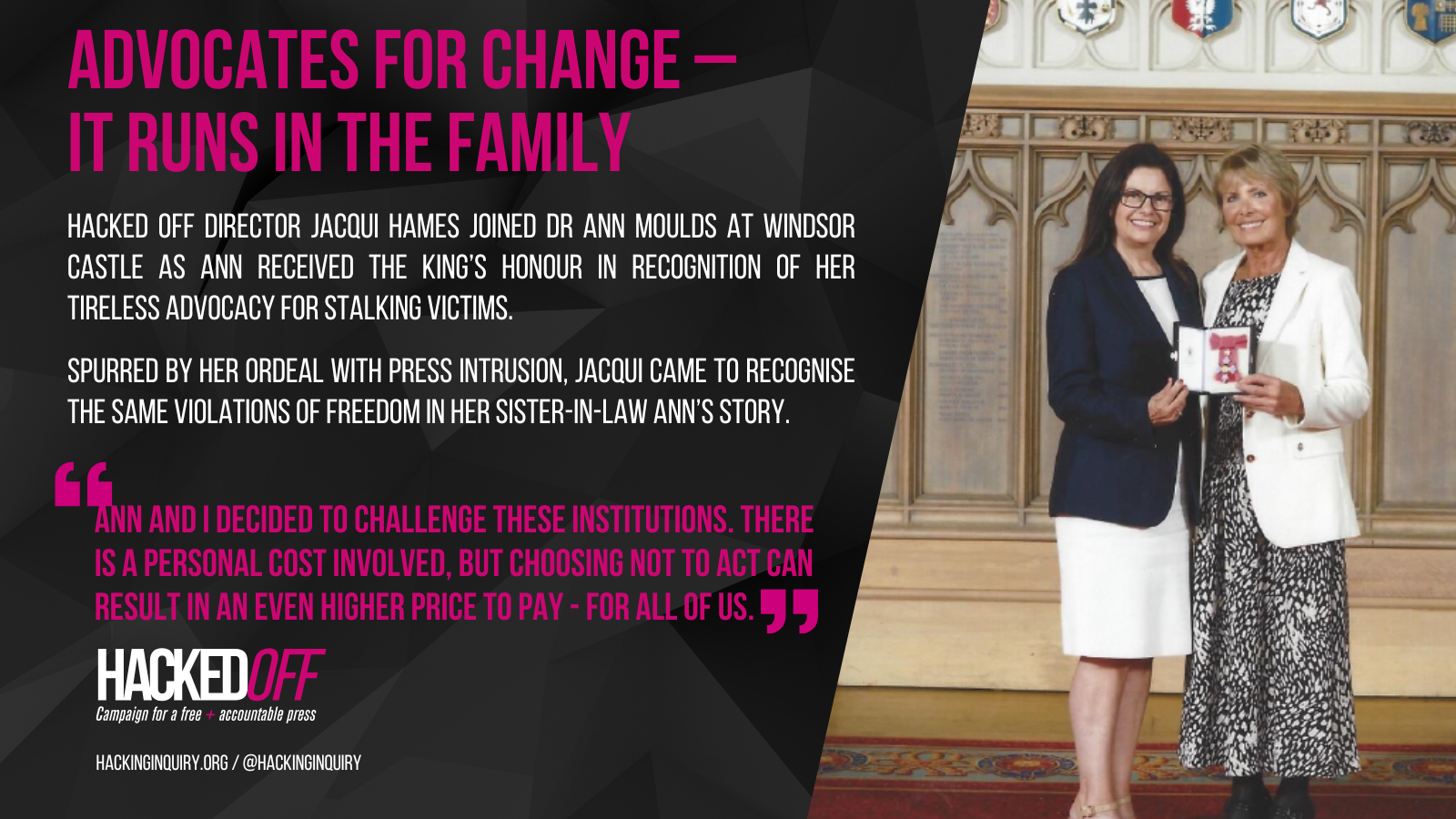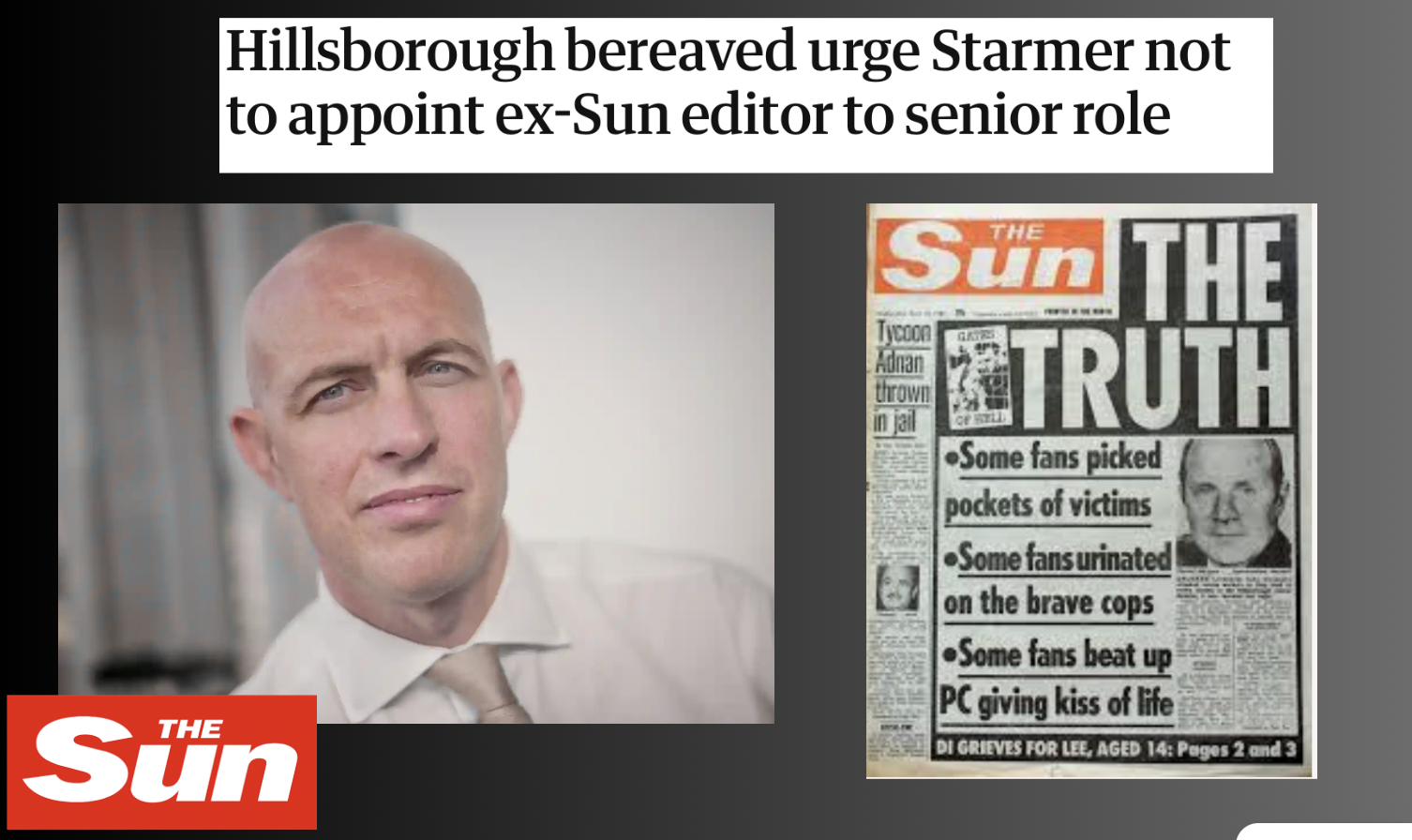


01/03/2024

The Angiolini Inquiry report, into the career and conduct of the individual responsible for the murder of Sarah Everard, was published on February 29th.
The report found that victims of the perpetrator, Wayne Couzens, suffered significant intrusions as the case against him received more publicity and court documents disclosed relevant information. The report stated:
“Whether taking the form of people tracking them down in person at home, calling them on their phones or communicating on social media, the contact from individuals, including from journalists, was intrusive and caused unnecessary anxiety and concern. It was clear that this was a serious issue, from victims’ descriptions.”
More detailed comments from the report are set out below.
Hacked Off Campaigns & Research Manager Alice Watkins said,
“It is utterly shameful that victims of these appalling crimes should have subsequently faced harassment at the hands of reporters.“Victims of sexual offences should never have to feel scared about having their identities potentially exposed. These intrusions also risk discouraging victims from coming forward in the future.“Yet there are no meaningful consequences for this kind of harmful and intrusive press behaviour under IPSO, the sham regulator controlled by the press.“These events are another mark of IPSO’s failure, and the body’s model of industry-controlled regulation.“If it had an ounce of independence or effectiveness IPSO would commence a full and detailed investigation into these findings immediately.”
Relevant report extracts:3.177 A further impact experienced by some victims was the unwanted intrusion in their private lives as a result of being a victim of Couzens. The Inquiry heard that, even when such intrusion did not materialise, a victim could feel: “[…] scared that my identity would be made public”. Whether taking the form of people tracking them down in person at home, calling them on their phones or communicating on social media, the contact from individuals, including from journalists, was intrusive and caused unnecessary anxiety and concern.
It was clear that this was a serious issue, from victims’ descriptions. They included:
• “I have been harassed at my home address. I have had people calling my personal and work phones. The consequence of this is that I have had to change my social media and disconnect my phone. All I have wanted is to be left alone.”
• “Eventually I stopped answering the door. I changed my social media accounts to try and make it harder for people to find me because I just wanted for me and my family to be left alone.”
Conclusion 16 It is inappropriate and unethical that any victim of crime should be further victimised by being the recipient of unwanted attention from reporters following court proceedings.
3.178 The Inquiry is concerned to learn about the unwarranted interference endured by victims of Couzens. It seems wholly inappropriate that any victim of crime should be further victimised by being the recipient of unwanted attention of this sort. The Inquiry heard evidence which assumed that personal information (including names and workplace information) referred to in court may be used to help in tracking down and making contact with complainants in order to obtain more information about their experiences. A witness suggested that “journalists should be sanctioned for improper use of information obtained in court, either by way of fine or excluded from future court proceedings”. Such behaviour seems to the Inquiry unethical and abhorrent as well as contrary to the spirit of the anonymity provisions.
3.179 Sadly, serious after-effects are not unusual for victims of sexual offending. According to Professor McMillan, they: “[…] can be considerable and can include physical, mental, social and interpersonal effects which can be experienced immediately or many months or years after the event. Sexual violence increases the chances of depression, anxiety, psychosomatic disorders and suicidal behaviour.”3.180 The Inquiry saw evidence of similar outcomes among some victims of Couzens. Their bravery in speaking out is recognised and commended.
By submitting your details you agree to receive email updates about the campaign. We will always keep your data safe and you may unsubscribe at any time.

